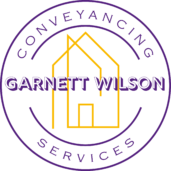Here are some of the most frequently asked questions (FAQ) we get here at Garnett Wilson. Although if you have a question which isn’t listed below, please get in contact with us.
What is Conveyancing?
What does a Conveyancer do? A Conveyancer will not only deal with relevant paperwork in connection with buying or selling a house or residential flat (and re-mortgaging etc.) but will also provide informed advice as to how the sale or purchase of the property is progressing and flagging up potential problems or pitfalls. Another key benefit of employing the professional services of a Conveyancer is their ability to deal with essential elements such as local searches and also provide advice on more general issues relating to the process of selling or buying a house, eg. rights of way, rights of light and easements in general which may affect the property.
The More Complicated Property Transfer: Flying Freeholds, Shared Boundaries and Missing Paperwork etc
Depending on the type of property you are buying or selling, this may influence the type of Conveyancer that you choose to instruct to handle the matter – you will need a very experienced Conveyancer if a property comprises more complex aspects such as flying freeholds, leasehold elements, shared boundaries etc.
In those situations, it is always better for you to choose a Conveyancer that you can speak to directly rather than an administrator or assistant who will not have the skill and knowledge required for the more difficult cases.
What is Tenants in Common?
With tenants in common each owns a set share – this can either be half each, or a defined percentage.
With tenants in common one member of a couple can pass on their share of the home on death, say to their children, while the other member of the couple can continue to live there, passing on their half on death. It is vitally important though, that if a Will is in place setting out your wishes and your circumstances change, eg. if you divorce or re-marry, then you must change your Wills as a marriage will invalidate an existing Will.
Tenants in common can also prevent you having to sell your home if you need to go into long-term care.
It is also a way for couples who have put unequal deposits into a property to protect their share in case they split up, this can ease the fears of families gifting deposits to their children.
For example, The property can be held as tenants in common, with a document showing one owner put in 70% of the deposit and one owner 30% and in the event of break-up and sale the initial deposits should be returned as such. The document is called a Trust Deed which can then be registered against the property to protect that parties interests.
What is Restrictive Covenant?
A property should have adequate rights of access and use and it is essential that the Conveyancer checks all of these before you proceed to purchase. In addition, the property may be subject to other peoples’ rights of use which may adversely affect your enjoyment of the property. Again, your Conveyancer should make appropriate enquiries.
Why Did Tenants in Common Gain In Popularity?
2. Minimising inheritance tax liability.
This enabled them to pass on the value of their home in two halves, with each member of the couple benefiting from their individual inheritance tax or capital gains allowance in turn – effectively doubling the allowance.
But in 2007, then Chancellor Alistair Darling announced that married couples and civil partners would be able to transfer their inheritance tax allowance to each other, removing the need for them to use tenants in common arrangements.
The changes to inheritance tax meant that with immediate effect married couples and civil partners could pass on their individual inheritance tax allowance on death (£325,000 in 2010/11) – creating the ability to bequeath up to £650,000 tax-free.
However, the rules do not apply to unmarried cohabiting couples or relatives living together.
How it Works
Due to the rising cost of housing, a property alone can push estates over the IHT threshold.
If you own your home as joint tenants then both of you own the whole of the property, so when one partner dies, the other automatically becomes the sole owner of the home. With tenants in common, you each own a share of the property, typically split half and half.
There is no inheritance tax to pay on assets willed between husband and wife, so the surviving partner does not have to pay IHT. But when the second partner dies, those who inherit the estate, typically the children, would have to pay IHT. IHT is charged at 40% on any assets over the nil-rate band. (In 2010/11 this stood at £325,000 for individuals and £650,000 for married couples and civil partners.)
When the Government introduced the ability to transfer inheritance tax allowances it only did so for married couples and civil partners.
Other joint owners can still benefit from tenants in common. By splitting the home in two, the half belonging to the first partner to die could be passed straight onto their children or any designated beneficiary.
As long as the half is worth less than £325,000 (2010/11 rate) then no tax will be due. When the second partner dies, their half, which is also inherited by children, may also be below the threshold, so again would miss IHT.
